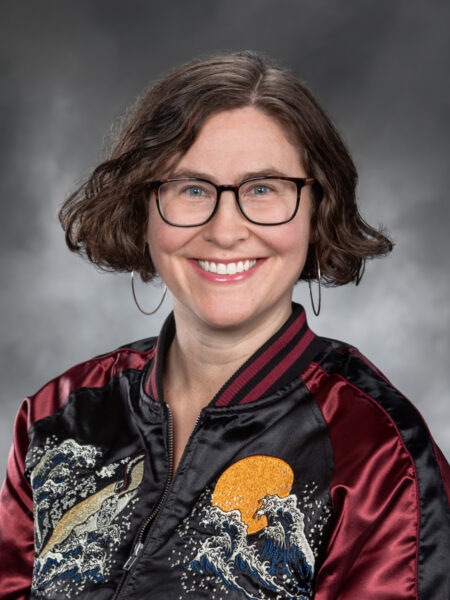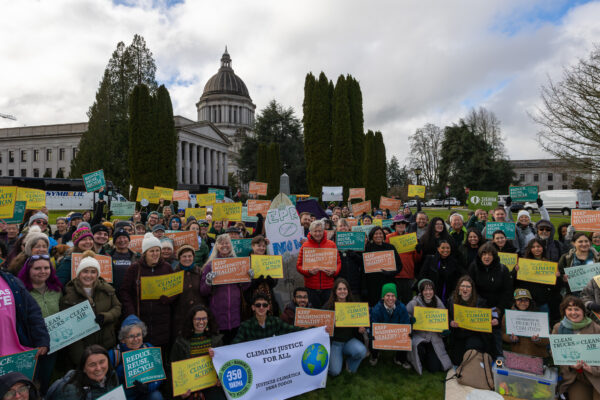The word “conservation” is controversial, and in some ways appropriately so. While the idea of conservation has been around since the late 17th century, it’s more recently defined as the effort to manage or restore ecosystems to achieve benefits for both humanity and wildlife.
Some feel that conservation does not go far enough: They want to preserve parts of the planet completely free of human influence.
Others might point to the tangled history of the modern conservation movement.
For instance:
- President Teddy Roosevelt started the National Park System, but a lot of the motivation was to preserve fishing and hunting grounds for largely white, largely male, largely wealthy outdoor enthusiasts.
- John Muir, the naturalist and founder of the Sierra Club, may have enthused at length about the beauties of stars and glaciers but when he came across the Native Mono people while hiking in the Sierra Nevada, he wrote that they “ha[d] no right place in the landscape.”
- In the early 20th century, the Audubon Society looked the other way when sportsmen killed millions of bald eagles and other raptors, then considered “vermin.”
- William Hornaday, a taxidermist and first director of the Bronx Zoo, has been credited with saving the bison from extinction by establishing a small herd at the zoo. Yet in the early 1900s, he shot 20 buffalo for taxidermy when there were just a few hundred left. Then, despite all evidence to the contrary, he had the audacity to partially blame Native Americans for the plight of this animal that once ranged the continent in their tens of millions.
Still other critics might point out: Who has suffered when conservationists have created protected areas? What of the Indigenous people around the world who were cleared off their homelands to make way for parks or for safari preserves? Across many countries in Africa in the 20th century, native peoples were forced to move in order to create a “wilderness” that conformed to the preconceptions of safari guests.
Obviously, at Washington Conservation Action, we believe in the power of meaning – leaning into what we feel is enshrined in the original ideals of “conservation.” While we must and do acknowledge the term’s complex history, we believe it has wider awareness across the state of Washington:
Conservation is a broad term.
Conservation science encompasses many, many fields: health policy, politics, ethics, communications, sociology, climate science, sustainable development, agriculture, anthropology, economics and more. All these things are connected, just as all people and animals and plants are connected. If we want to create effective solutions, we need to get out of our silos and see these connections.
Conservation embraces both ecosystems and human systems.
There is no place on earth that is not affected by humanity. Humans use approximately 56 percent of the world’s freshwater. The problems created by burning fossil fuels are felt everywhere. Any realistic plan to heal the planet must recognize that humanity and nature are deeply intertwined. Clean air, clean water, functioning watersheds, healthy soil—We all need these things, not just humans but salmon, orca, cedar trees and more. This idea guides everything that Washington Conservation Action does.
Conservation is an idea based on ethics.
Indigenous Peoples have observed the practice of reciprocity with nature since time immemorial, practicing only taking what you need and giving back in return.
In 1662, John Evelyn presented what is considered the first “conservation” paper to the Royal Society in England, criticizing the deforestation of that country because of King Charles II’s many building projects. Evelyn was way ahead of his time, suggesting that forest be preserved and that new trees be planted where others had been logged. As the idea of conservation developed in the following centuries, it centered the idea of responsibility. In other words, conservationists work from a foundation of respect for both the earth and for people, and with the goal of protecting both. That’s why our tagline is: “Protecting People and Nature as One.”
Conservation addresses economic development and jobs.
Humans need a way to make a living. Humans will continue to use resources. The solution isn’t to ban all development and consumption, but to reframe and re-imagine how we meet our needs while also leaving a healthy planet to future generations. That’s why Washington Conservation Action is working on projects such as a 5-year effort to develop wood supply chains in Pierce County that help fight climate change. Harvesting wood at longer intervals, for instance, leaves carbon in forests rather than releasing it into the atmosphere.
Conservation includes racial, economic and environmental justice.
The economic and political systems that perpetuate white supremacy and income inequality also harm the planet. When we give people a voice in their political and economic futures, not only do they benefit, but studies show that conservation benefits. When people self-organize to manage their local resources, they are more effective than when solutions are handed down from the top.
That’s why Washington Conservation Action seeks to work with partners around the state, to listen and then to amplify local voices for local solutions. Our forest team works with Washington Fire Adapted Communities Learning Network to promote resilience in an age of wildfire, especially in the eastern part of the state. We have local staff maintaining relationships in Vancouver in the southwest, building on a decade of work with Stand Up to Oil. In Yakima, we’re partnering with local organizations like Washington for Equitable Representation and Washington Community Alliance to promote voter participation.
This also is why we have started our Tribal Nations program and why we support the work of Native Vote Washington. It’s why we have opposed the Goldendale Energy Storage project: It would destroy lands that are culturally and economically important to the Yakama Nation. If it hurts Tribes, it’s not clean energy.
The only way forward is together, people and nature. At Washington Conservation Action, we work with this always in mind. Join us.



